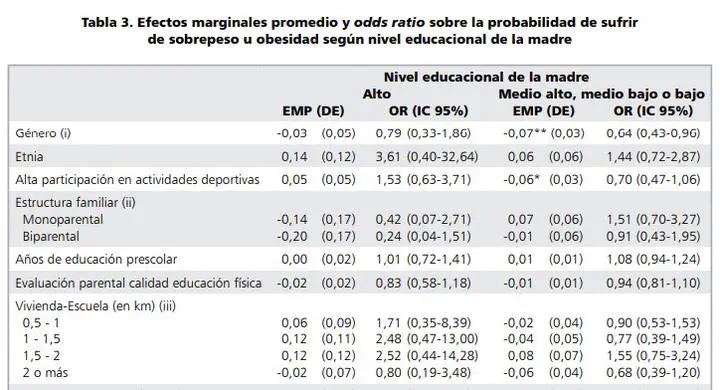Individual, social and environmental determinants of overweight and obesity among Chilean adolescents

Abstract
Background - In Chile, overweight and obesity are pressing issues in public health. Aim - To identify individual, social and environmental factors that affect the likelihood of adolescents to become overweight or obese. Material and Methods - We used physical condition data of a sample of 900 urban eighth grade students from Santiago, obtained in the 2011 National Study of Physical Education. This information was complemented with georeferenced data from the place of residence of students and the environment in which they live. We used three logistic regression models to estimate the relationship between individual, social and environmental factors and the likelihood of being overweight or obese. Results - Men and students of high socioeconomic status (SES) have a lower probability of being overweight (-6 percentage points (pp.) and -12 pp. respectively). Furthermore, the determinants that affect overweight depend on SES. Namely, only men of middle and low SES have a lower probability of being overweight (-7 pp.). Participation in school sporting activities reduces the likelihood of being overweight only for students of middle and low SES (-5,5 pp.). For adolescents of high SES, the distance between their school and the nearest fast food restaurant decreases the likelihood of being overweight (-4.7 pp. per km.). Conclusions - The determinants of overweight differ by SES. Public policy design should consider socioeconomic inequalities that characterize the Chilean reality.